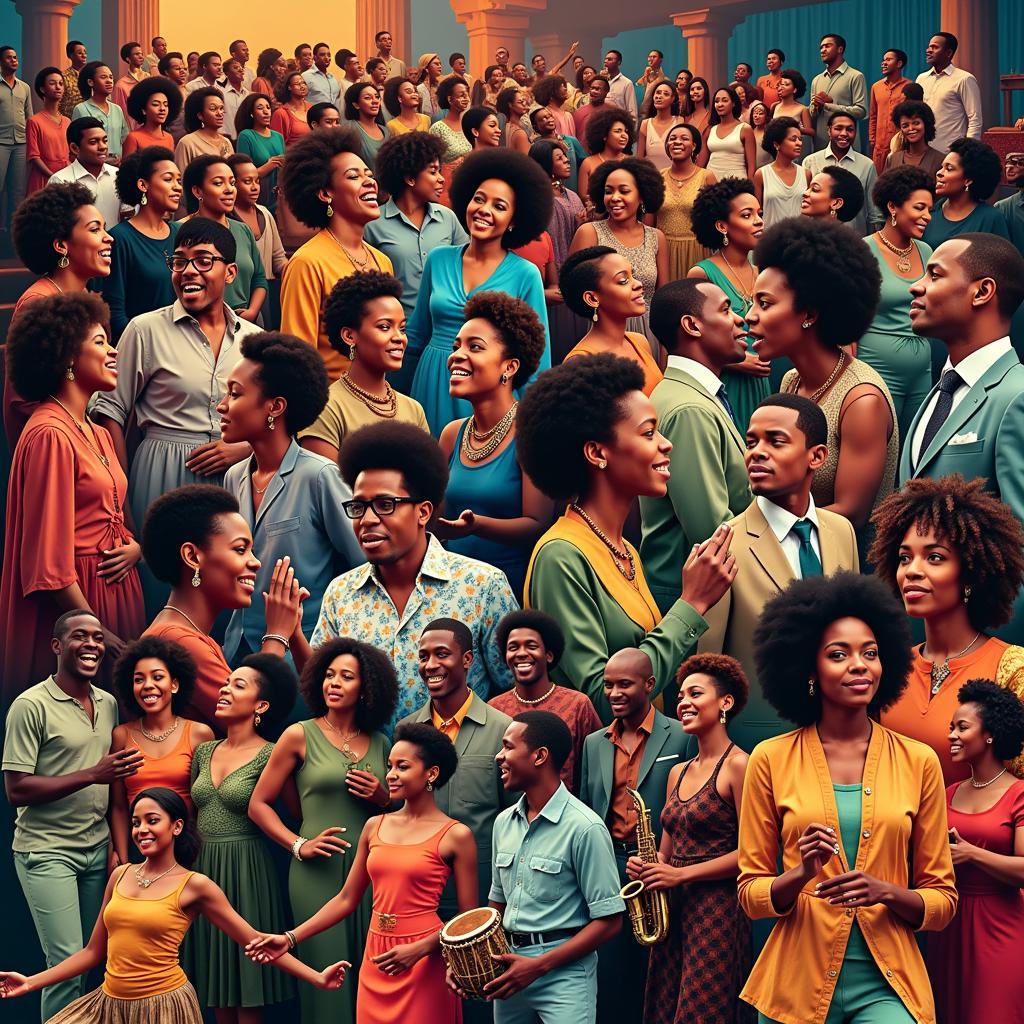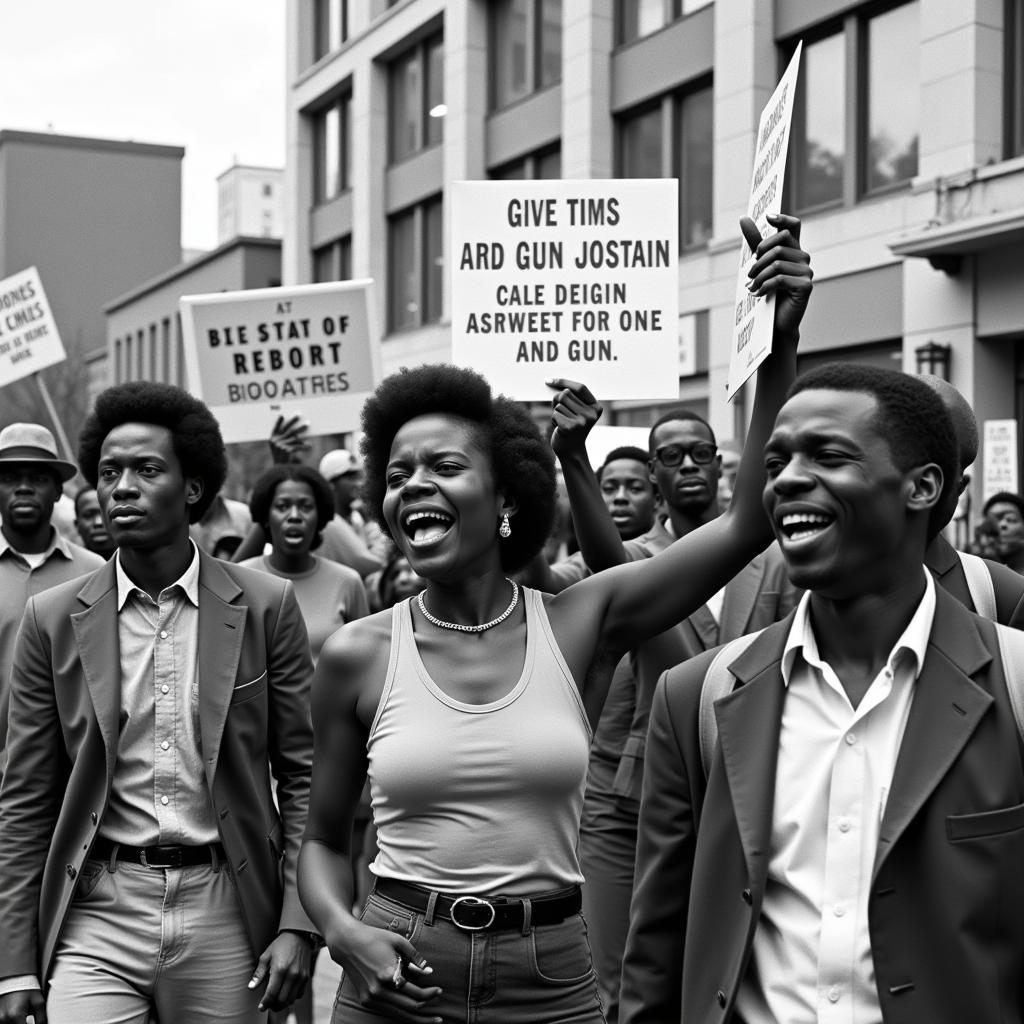Understanding the Black African American Identity
The term “A Black African American” often sparks questions about identity, heritage, and belonging. This article delves into the complexities of this identity, exploring the historical, cultural, and social factors that shape the experience of being a Black African American in the United States. We will examine the rich tapestry of African American culture, the ongoing struggle for equality, and the diverse perspectives within this community.
It’s crucial to recognize that the term “Black African American” encompasses a vast array of experiences. While it generally refers to individuals of African descent born in the United States, the nuances of identity are far more complex. The African diaspora, with its forced migrations and complex histories, has created a multifaceted community in America. This community, while united by a shared struggle against systemic racism, is also beautifully diverse in its cultural expressions, religious beliefs, and socio-economic backgrounds.
Exploring the African Roots of African American Culture
African American culture is deeply rooted in the traditions and customs of Africa. Despite the horrors of slavery, which aimed to erase African identity, cultural remnants persevered and evolved, merging with influences from European and American cultures to create something uniquely African American. Music, dance, storytelling, and spiritual practices all bear the imprint of this rich heritage.
 African American Music and Dance Heritage
African American Music and Dance Heritage
For example, the rhythmic complexities of African music are evident in genres like jazz, blues, and hip-hop. The oral tradition of storytelling, central to many African cultures, has found expression in African American literature and spoken word poetry. And spiritual practices, often blending African beliefs with Christianity, have played a vital role in community building and resilience.
Navigating the Social and Political Landscape
The journey of African Americans has been marked by a constant struggle for civil rights and social justice. From the abolition of slavery to the Civil Rights Movement and beyond, Black Americans have fought tirelessly against discrimination and systemic oppression.
 African American Civil Rights Movement Protests
African American Civil Rights Movement Protests
Understanding the history of this struggle is essential to understanding the contemporary challenges faced by Black African Americans. Issues like police brutality, racial profiling, and disparities in education, healthcare, and economic opportunity are all legacies of a system built on racial inequality.
The Importance of Representation and Visibility
The increased visibility of Black African Americans in media, politics, and other spheres of public life is a crucial step towards dismantling harmful stereotypes and fostering greater understanding. Seeing positive representations of Black people in positions of power and influence can inspire younger generations and challenge deeply ingrained prejudices. 100 african american movies is a great resource to explore the impact of Black representation in film.
The Diversity Within the African American Community
It’s important to acknowledge the diversity within the African American community. Experiences vary based on factors like geographic location, socio-economic status, gender identity, sexual orientation, and religious beliefs. Generalizations about “the Black experience” can erase the unique challenges and triumphs faced by different individuals within this diverse community.
“Understanding the intersectionality of these identities is critical to addressing the specific needs and concerns of various subgroups within the African American population,” explains Dr. Anika Johnson, a sociologist specializing in African American studies. “We need to move beyond monolithic representations and embrace the richness and complexity of this community.”
Conclusion
The term “a black African American” represents a complex and evolving identity. This article has only scratched the surface of the rich history, culture, and social dynamics that shape this experience. Continued dialogue, education, and engagement are essential to fostering understanding, promoting equality, and celebrating the resilience and contributions of Black African Americans. The African American Chamber of Commerce Pittsburgh offers valuable resources for supporting Black businesses and economic empowerment within the community. Understanding the nuanced experiences within the community requires acknowledging the historical impact of systemic racism and the ongoing fight for equality. Learning more about African American postage stamps can offer a glimpse into how historical figures are recognized and commemorated.
FAQ
- What is the difference between African American and Black?
- What is the significance of Black History Month?
- How has African culture influenced African American cuisine?
- What are some key figures in the Civil Rights Movement?
- What are some current challenges facing the Black community?
- Where can I find resources to learn more about African American history and culture?
- How can I support Black-owned businesses and organizations?
Exploring the contributions of African American women and Black History Month provides a valuable perspective on the multifaceted nature of Black history and culture. This topic is especially relevant for understanding the intersection of race and gender in shaping identity and experience. Additionally, appreciating the artistic expressions of African American artist black nude can offer insights into how identity and representation are explored through art.
When you need assistance, please contact Phone Number: +255768904061, Email: [email protected] Or visit: Mbarali DC Mawindi, Kangaga, Tanzania. We have a 24/7 customer service team.
